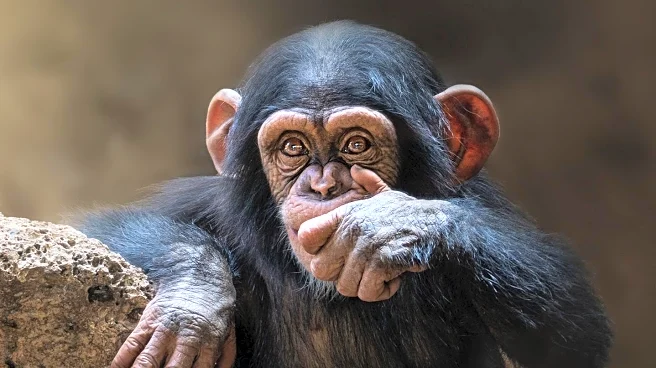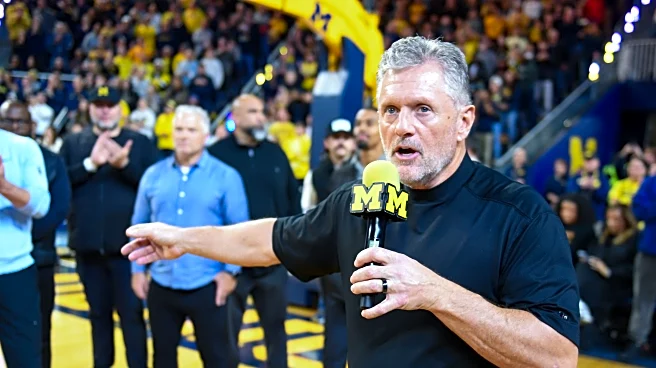What is the story about?
What's Happening?
Dr. Jane Goodall, a celebrated chimpanzee researcher and animal advocate, has died at the age of 91 due to natural causes, as announced by the Jane Goodall Institute. Goodall was in California at the time of her death, participating in a speaking tour. Her groundbreaking work with chimpanzees began in the 1960s in Tanzania, where she made significant discoveries about their use of tools, communication, and social structures. Her research revolutionized the field of ethology and inspired generations of scientists. Goodall's approach was unique, as she immersed herself in the chimpanzees' habitat, observing them closely as individuals with distinct personalities. Her work highlighted the complexity of chimpanzee emotions and behaviors, both nurturing and aggressive. As her career progressed, Goodall shifted her focus to conservation and animal welfare, founding the Jane Goodall Institute in 1977 to protect chimpanzees from habitat destruction and illegal trafficking.
Why It's Important?
Jane Goodall's contributions to science and conservation have had a profound impact on the understanding of primates and the importance of preserving their habitats. Her pioneering research challenged existing scientific beliefs and expanded the scope of ethology, influencing both academic and public perceptions of animal behavior. Goodall's advocacy for animal rights and conservation has led to significant changes in policies and practices, particularly in the treatment of chimpanzees in research settings. Her legacy continues to inspire efforts to protect endangered species and promote environmental sustainability. The Jane Goodall Institute remains a vital force in global conservation efforts, emphasizing the interconnectedness of human and animal welfare.
What's Next?
The passing of Jane Goodall marks the end of an era in primate research and conservation. Her institute is expected to continue her mission, focusing on the protection of chimpanzees and their habitats. Conservationists and animal rights advocates may use this moment to renew calls for stronger protections against habitat destruction and illegal wildlife trafficking. The scientific community may also reflect on Goodall's methodologies, potentially influencing future research approaches in ethology and conservation biology. Tributes and memorials are likely to be organized to honor her contributions and inspire continued efforts in the fields she championed.
Beyond the Headlines
Jane Goodall's work has not only advanced scientific understanding but also raised ethical questions about the treatment of animals in research and captivity. Her approach to studying chimpanzees as individuals with emotions and personalities challenged traditional scientific methods and highlighted the moral responsibilities humans have towards other species. Goodall's advocacy has contributed to a broader cultural shift towards recognizing the intrinsic value of wildlife and the need for ethical conservation practices. Her legacy prompts ongoing discussions about the balance between scientific inquiry and animal welfare, encouraging a more compassionate approach to environmental stewardship.
















